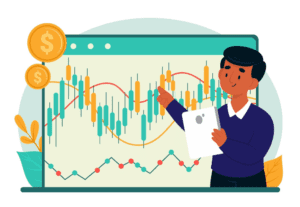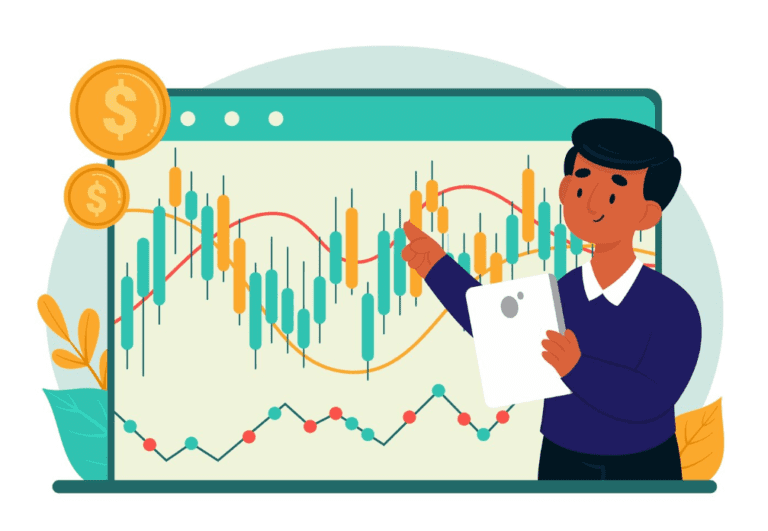In the vast world of Forex trading, one term holds a pivotal role—spread. Let’s journey to unravel the mysteries behind this crucial element. Simply put, the spread represents the difference between buying and selling prices for a currency pair. Consider it the fee you pay to participate in the currency exchange game.
What is spread in Forex? Well, a low spread is like a smooth highway; it makes trading easier and cheaper. Picture this: tight spreads mean less cost for your trades, making your wallet happier. Whether you’re a quick decision-maker or a patient investor, the spread influences your journey in the Forex market.
But beware! Sometimes, the spread widens, especially when the market gets a bit wild. It’s like navigating a bumpy road—challenging but manageable. Choosing the right broker? That’s like picking the best car for your journey. Competitive spreads should be on your checklist.
So, fasten your seatbelt as we demystify the spread in Forex—a key player in your trading adventure.
What is Spread in Forex?

Now, let’s get to the heart of the matter—defining spread in Forex trading. Imagine you’re in a marketplace to exchange your toys. When you want to sell a toy, someone might be willing to buy it at a certain price, right? The price they’re willing to pay is the “bid” price. Now, if you want to buy a toy, someone will sell it to you at a specific price—that’s the “ask” price. The difference between these two prices is what we call the spread.
In simpler terms, the spread is like the gap between what someone is ready to pay and what another person is asking for. In Forex, it’s the gap between buying and selling prices of currencies. So, when we talk about spread, we’re essentially exploring the space between making a deal in the currency world.
Significance Of Low Spread
Now that we’ve grasped what is spread in Forex trading, let’s delve into why a low space is the gold standard in Forex trading. Imagine you’re trading baseball cards, and someone offers to buy or sell a card with just a tiny price difference—it’s like a win-win situation. Well, that’s precisely what a low spread brings to the table in currency trading.
A low spread means the gap between buying and selling prices is minimal. Why does this matter? In the Forex world, a low spread signifies a smooth and liquid market. When the space is tight, it’s like having a well-paved road—easy to travel, less friction, and quicker transactions.
Now, let’s talk about the magic word: Profit. With a low spread, the cost of making a trade decreases, leaving you with more profit in your pocket. It’s the financial equivalent of finding a treasure chest—it makes your trading journey more rewarding.
So, whether you’re a quick decision-maker or a patient player, a low spread is your friend in the currency seas, ensuring a smoother and more profitable sailing experience.
Impact On Trading Strategies
Now that we understand the value of a low spread, let’s explore how it influences various trading strategies. Imagine you’re playing a game of chess, and each move involves a bit of design. In Forex, trading strategies are like your moves to win the game.
For day traders, those quick decision-makers, a tight spread is a game-changer. It allows them to make frequent moves without hefty costs, like having the perfect chess piece for every situation. On the flip side, long-term investors benefit, too. A low spread makes managing their portfolio more cost-effective, like having a strategy that pays off over time.
In essence, the spread is a key player in shaping how traders approach the currency landscape.
Market Volatility and Spread
Now, let’s talk about market volatility—a fancy term for when things get unpredictable in the currency world. In Forex, when the market gets a bit wild, the spread can widen.
Picture this: You’re on that bumpy road, and suddenly, the space between buying and selling prices gets slightly larger. It’s not a roadblock, but you must adjust your driving (or trading) style. Traders must be savvy navigators, adapting their strategies to these changing conditions.
Understanding how market volatility affects the spread is like knowing the terrain before you embark on a journey.
Choosing a Broker Wisely
In the vast landscape of Forex trading, picking the right broker is akin to selecting the perfect vehicle for your journey. Just as a reliable car ensures a smooth ride, a broker with competitive spreads sets the tone for a successful trading expedition.
Consider it this way: brokers are like different car models, each offering distinct features. Competitive spreads, or the efficiency of the vehicle, play a crucial role. When selecting a broker, look for one that provides tight spaces, ensuring cost-effective trades. It’s akin to choosing a car that looks good and delivers optimal performance on the road.
Conclusion
In wrapping up our exploration of Forex trading, remember this: understanding the spread is like having a map for your currency adventures. A low spread makes your journey smoother, whether you’re a quick decision-maker or a patient player.
So, as you navigate the currency seas, keep the significance of spread in mind. Keep yourself updated with official Forex trading events to grasp knowledge from the experts to exceed in your Forex journey. Also, consider Forex trading courses offered by Financial Markets Online, and let the currency adventure begin!
Frequently Asked Questions
1: What is spread in Forex trading?
The spread is the gap between buying and selling prices, like the difference in toy prices.
2: Why is a low spread important?
A low spread means smoother trading, like having a well-paved road for cheaper and more profitable journeys.
3: How does market volatility affect the spread?
When the market gets wild, the spread may widen, requiring traders to adapt like skilled navigators.
4: Why is choosing the right broker crucial?
Picking a broker with competitive spreads is like choosing a reliable car—it ensures a successful trading journey.



